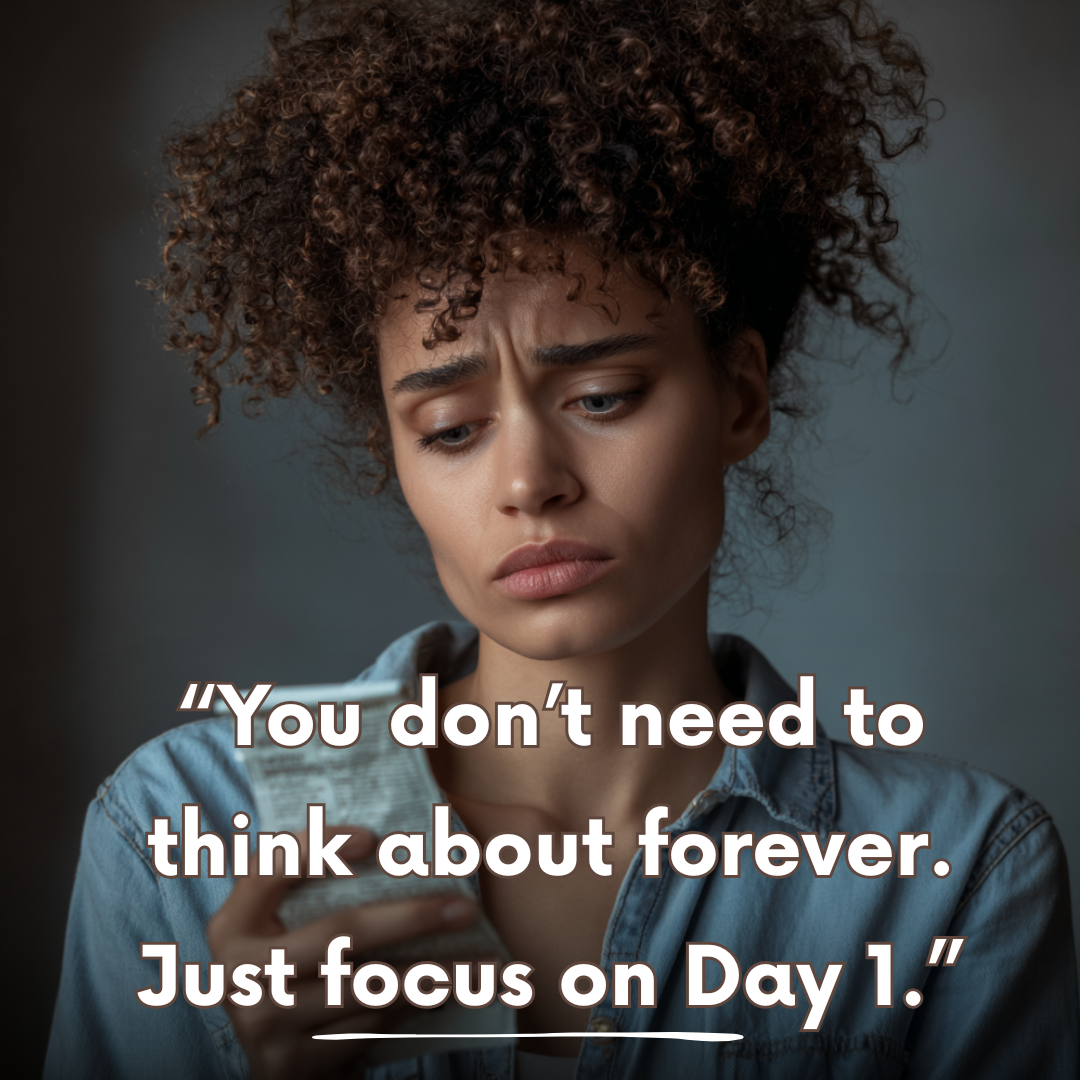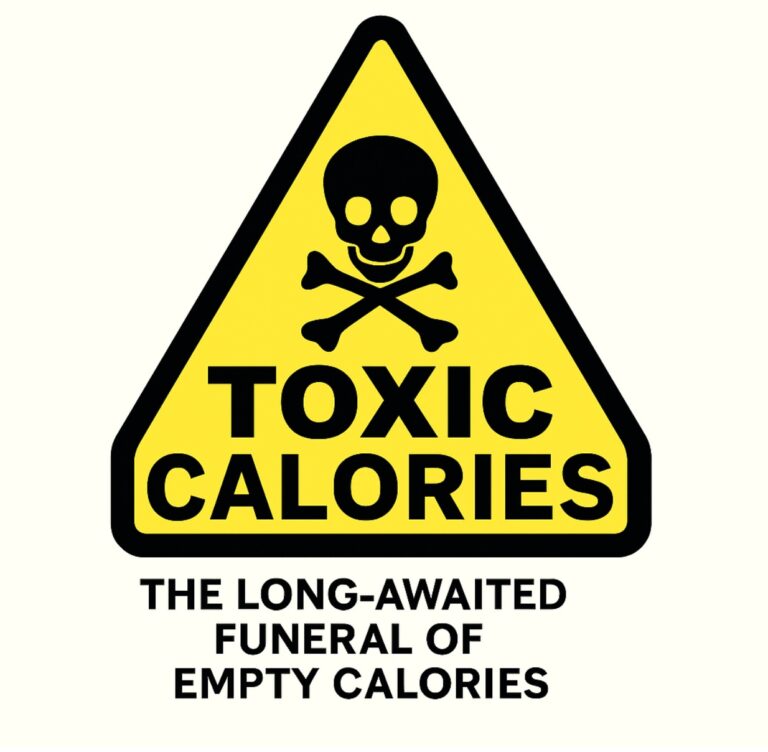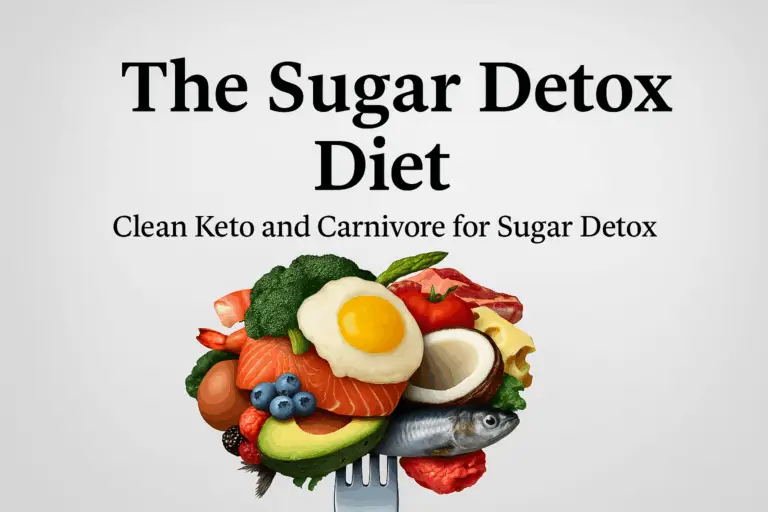By Mike, The SugarFreeMan
Founder of SugarDetox.com and the 30-Day Sugar Freedom Challenge

Featured Snippet Summary:
Yes, sugar addiction is real – and for many people, it’s even harder to quit than drugs or alcohol. After 35+ years sugar-free and decades of supporting others through detox, I’ve seen this truth play out again and again.
This article was review by Dr. Camela McGrath, MD, FACOG. Find more about her here
After 35 Years Sugar-Free, Here’s What I’ve Seen
The word “addiction” carries a weight.
It brings up shame, stigma, judgment. We’re quick to associate it with weakness or failure. But in truth? Addiction is a health issue – not a character flaw.
There’s a movement today to shift the language we use. Instead of calling someone an “addict,” we say “a person in recovery.” Instead of “junkie,” we say “person with substance use disorder.”
I support that. Language matters. Reducing stigma matters.
But let’s talk plainly for a minute.
Because while the world debates semantics, people are still trapped in the grip of a very real addiction – one most folks don’t even recognize:
Sugar.
What If Sugar Addiction Is Just as Real?
Some people call it “Sugar Use Disorder.” I call it sugar addiction.
Either way, the question remains:
Is it real?
Here’s how I know the answer is yes – without a shred of doubt.
How I Know Sugar Addiction Is Real
I’ve been in recovery from drugs and alcohol for over 40 years.
That means I’ve lived both sides – the highs, the crashes, the cravings, and the long climb back to sanity.
But here’s the twist: I’ve also been sugar-free for over 35 years.
And for the last few decades, I’ve worked closely with hundreds of others – folks in recovery from hard drugs and alcohol – helping them quit sugar too.
Why? Because sugar quietly hijacked their lives when they got sober. It snuck in through the back door.
“Which Was Harder to Quit – Sugar or Drugs?”
About ten years into my sugar-free life, I started asking the folks I was helping:
“Which was harder to quit – sugar or drugs?”
And almost without fail, they’d say the same thing:
“Sugar.”
That’s right. People who had detoxed off heroin, alcohol, meth – said that sugar was harder.
That’s not hyperbole. That’s lived experience. And I’ve heard it again and again.
Why Sugar Grabs Hold – Even in Recovery
Here’s what often happens in the recovery world:
- You get clean and sober
- You feel the void where the substance used to be
- You start craving comfort, reward, relief
And guess what’s socially acceptable, legal, and everywhere?
Sugar.

Before long, the weight creeps up. The energy crashes start. The guilt sets in. And the cycle continues.
Except this time, it’s not booze or pills – it’s “just food.”
Except it’s not.
Our Specialty: People Who’ve Tried Everything
At SugarDetox.com, we work with people who’ve already tried everything.
They’ve read the books. Tried moderation. Downloaded meal plans. Maybe even done a Whole30 or keto reset.
But the cravings keep coming. The binges return. And each “restart” feels more hopeless than the last.
That’s where we come in.
If that’s you, I want to invite you to something that’s actually designed for people like us.
Check out the 30-Day Sugar Freedom Challenge – not a diet, not a detox tea – but a real, human-centered path to sugar freedom.
Why Most People Miss the Real Problem
The real issue isn’t willpower.
It’s that sugar lights up the same reward circuits in the brain as addictive drugs.
A study from Connecticut College found that rats reacted more strongly to Oreos than to cocaine.
And it’s not just behavioral – it’s biochemical. Sugar triggers dopamine. It builds tolerance. And over time, we need more to feel the same “hit.”
No, it’s not about being weak.
It’s about biology. Repetition. Reward loops.
How Do You Know If It’s Addiction?
Ask yourself:
- Do I keep eating sugar even when I say I won’t?
- Do I feel anxiety or discomfort when I don’t have it?
- Do I binge in secret, or feel guilt afterward?
- Do I use sugar to change how I feel?
If you said yes to even a few of those, you’re not alone.
That’s exactly how addiction shows up.
What to Do If You Think You’re Addicted to Sugar
First, take a breath. This isn’t about shame.
It’s about seeing the truth clearly – and choosing to do something about it.
Here’s what I recommend:
1. Get Honest With Yourself
Name it for what it is. Don’t sugarcoat it (pun intended). Addiction thrives in denial.
2. Don’t Go It Alone
Sugar loses its power when it’s no longer a secret. Join a support group, find a buddy, or check out our Facebook group with 20k+ others who get it.

3. Start with Structure
You don’t need to figure out forever. Just focus on a framework that helps you through the next 30 days.
That’s why I built the challenge – so you’d have a step-by-step roadmap with real support.
Join the 30-Day Sugar Detox Challenge today and take the first real step toward sugar freedom.
Bottom Line: This Is a Real Addiction – and There’s Real Help
Sugar addiction is real.
And if you’re stuck in it, I want you to know there’s a way out. I’ve lived it. Thousands of others have too.
You don’t need to think about forever.
Just focus on Day 1.
About the Author
Mike Collins, known as “The SugarFreeMan,” has been sugar-free for over 35 years and is the founder of SugarDetox.com. He has helped tens of thousands of people break free from sugar addiction through his evidence-based approach combining nutritional science with practical behavior change strategies.
Medical Disclaimer
This article is for educational purposes only and is not intended to replace professional medical advice. Always consult with a healthcare provider before making significant dietary changes, especially if you have underlying health conditions.
FAQs
Is sugar addiction a real medical condition?
While not officially classified like substance use disorders, sugar addiction is supported by neuroscience research and real-world behavioral patterns that mimic other forms of addiction.
What are the symptoms of sugar addiction?
Common symptoms include intense cravings, withdrawal-like symptoms, binge eating, guilt after consumption, and the inability to stop despite negative consequences.
Can quitting sugar cause withdrawal symptoms?
Yes. People may experience headaches, fatigue, irritability, and mood swings for a few days to a week after quitting sugar.
How is sugar addiction different from just having a sweet tooth?
A sweet tooth is occasional and manageable. Addiction involves loss of control, cravings, and using sugar to alter emotional states.What’s the best way to break free from sugar addiction?
Structured support. A plan. And a community that understands. That’s why we recommend the 30-Day Challenge.





